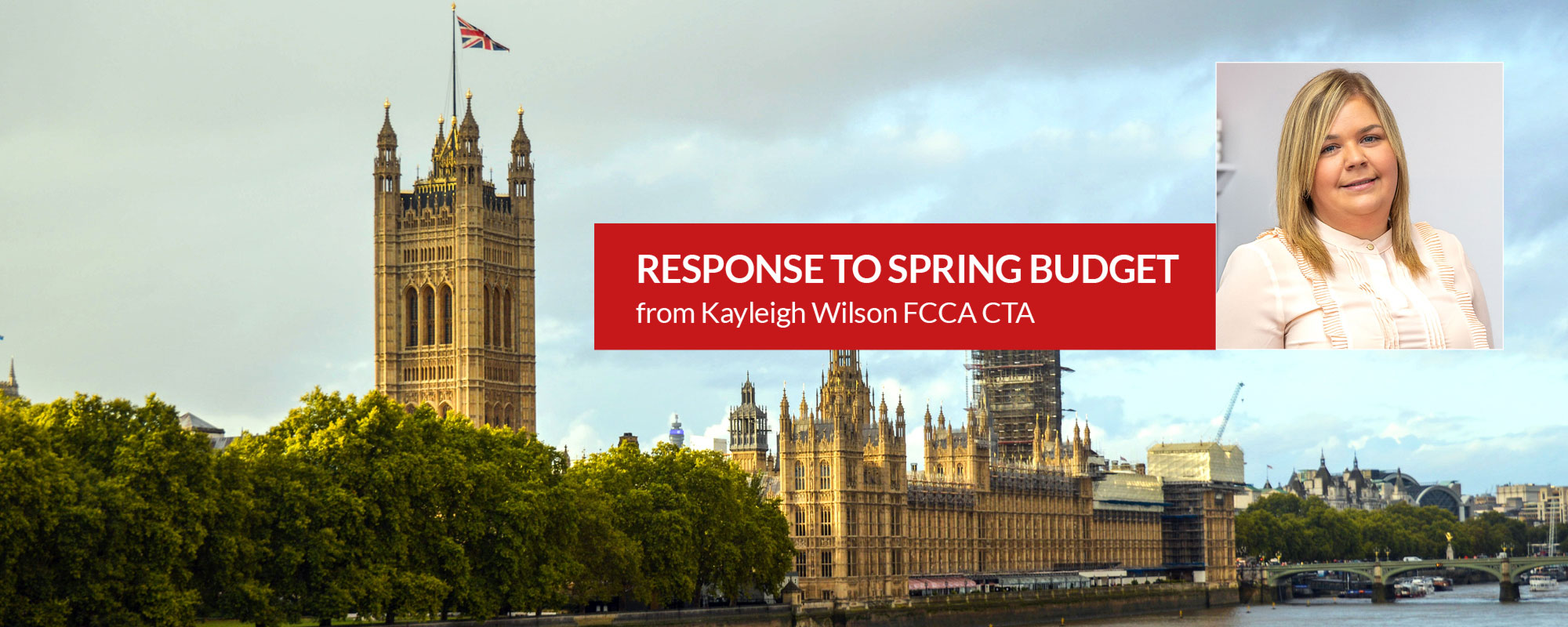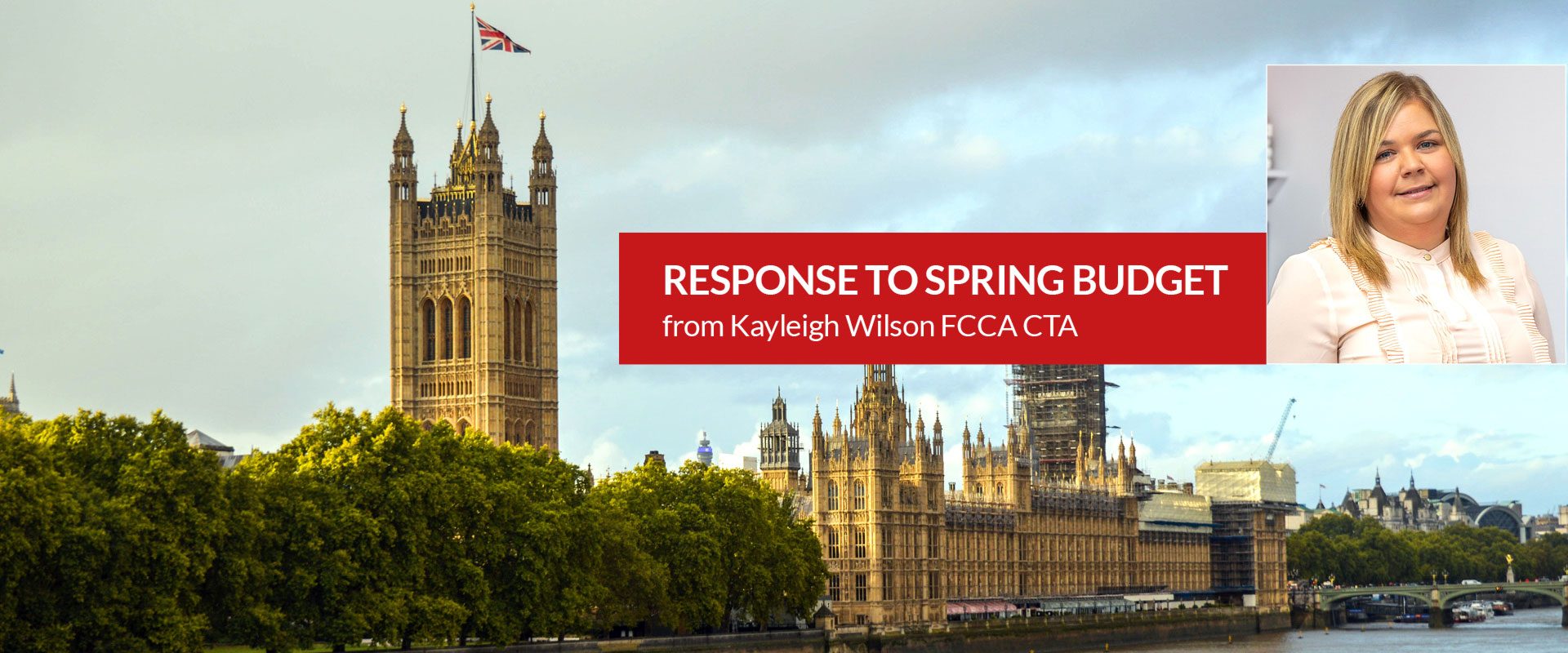16th March, 2023, Melanie Harriss
Kayleigh Wilson FCCA CTA, Tax Manager at Stephenson Smart, responds to the Spring Statement 2023, and what it means for you.
There was a lot to digest during Jeremy Hunt’s Spring Statement, with major priorities given to reduce debt, grow the economy and halve inflation.
The chancellor announced that the UK will now NOT enter a technical recession this year and reports that inflation will fall from 10.7% in the final quarter of last year to 2.9% by the end of 2023.
Although this statement did not contain many changes to tax measures, unlike the previous few House of Commons announcements, let’s break down what it means for you and your business.
Personal
Pension tax limits
This measure supports the government’s efforts to encourage inactive individuals to return to work, and it removes incentives to reduce hours or leave the labour market due to pension tax limits. Legislation will be introduced in the Spring Finance Bill 2023 and will have effect from 6 April 2023. This will:
- Increase the Annual Allowance from £40,000 to £60,000.
- Increase the Money Purchase Annual Allowance from £4,000 to £10,000.
- Increase the income level for the tapered Annual Allowance from £240,000 to £260,000.
- Ensure that nobody will face a Lifetime Allowance charge.
- Limit the maximum an individual can claim as a Pension Commencement Lump Sum to 25% of the current Lifetime Allowance (£268,275), except where previous protections apply.
Legislation will be introduced in a future Finance Bill to abolish the Lifetime Allowance from pensions tax legislation in its entirety
Business
Capital allowances
The super-deduction regime, which gives a 130% enhanced first year allowance to companies on the purchase of qualifying plant and machinery, comes to an end on 31 March 2023.
Instead, the government has announced Full Expensing, a 100% first year allowance, which allows companies to deduct the cost of qualifying plant and machinery from their profits straight away with no expenditure limit.
Qualifying expenditure will include most plant and machinery, as long as it is unused and not second-hand, but will not include cars. Full Expensing will be effective for acquisitions on or after 1 April 2023, but before 1 April 2026.
A 50% first year allowance for other plant and machinery, including long life assets and integral features (known as special rate assets) will operate along similar lines.
Full Expensing and the 50% first year allowances are only available for companies and not for unincorporated businesses.
The Annual Investment Allowance (AIA) is available to both incorporated and unincorporated businesses. It gives a 100% write-off on certain types of plant and machinery up to certain financial limits per 12-month period.
The limit has been £1 million for some time but was scheduled to reduce to £200,000 from April 2023. The government has announced that the temporary £1 million level of the AIA will become permanent and the proposed reduction will not occur.
The government will also extend the 100% first year allowance for electric vehicle charge points to 31 March 2025 for corporation tax purposes and 5 April 2025 for income tax purposes.
Research and Development (R&D Relief)
For expenditure on or after 1 April 2023, the Research and Development Expenditure Credit (RDEC) rate will increase from 13% to 20%, but the small and medium-sized enterprises (SME) additional deduction will decrease from 130% to 86% and the SME credit rate will decrease from 14.5% to 10%.
A higher rate of SME payable credit of 14.5% will apply to loss-making SMEs which are R&D intensive.
To be R&D intensive the ratio of the company’s qualifying R&D expenditure must be 40% or above the company’s ‘total expenditure’ for the period. This equates to a receipt of £27 for every £100 of R&D expenditure.
All claims for R&D reliefs will have to be made digitally and be accompanied by a compulsory additional information form.
Companies will also need to notify HMRC that they intend to make a claim within six months of the end of the period of account to which the claim relates.
These changes apply to claims in respect of accounting periods which begin on or after 1 April 2023 apart from the additional information form, which will be required for claims made on or after 1 August 2023.
The restriction to relief on overseas expenditure, designed to refocus support towards UK innovation, will now come into effect from 1 April 2024 instead of 1 April 2023.
Making Tax Digital (MTD) for income tax
The MTD regime that has been continuously postponed for the last few years is now set to be introduced from April 2026, with businesses, self-employed individuals and landlords with income over £50,000 mandated to join first, a change from the original £10,000 limit.
Those with income over £30,000 will be mandated from April 2027.
Following the new approach, the government will not extend MTD for ITSA to general partnerships in 2025.
HMRC has previously announced that MTD for corporation tax will not be mandated before 2026. This now looks even further away.
Capital Taxes
CGT annual exemption
The government has announced that the capital gains tax annual exempt amount will be reduced from £12,300 to £6,000 from 6 April 2023 and to £3,000 from 6 April 2024.
Estates in administration and trusts
Changes are introduced which will affect the trustees of trusts and personal representatives who deal with deceased persons’ estates in administration, and beneficiaries of estates over the next few years:
- Provide that trusts and estates with income up to £500 do not pay tax on that income as it arises.
- Remove the default basic rate and dividend ordinary rate of tax that applies to the first £1,000 slice of discretionary trust income.
- Provide that beneficiaries of UK estates do not pay tax on income distributed to them that was within the £500 limit for the personal representatives.
I am a tax specialist at Stephenson Smart and, supported by a team of qualified, experienced accountants, we are here to help you understand the impact of the announced changes to you and your business.
Please get in touch by calling 01553 774104.


